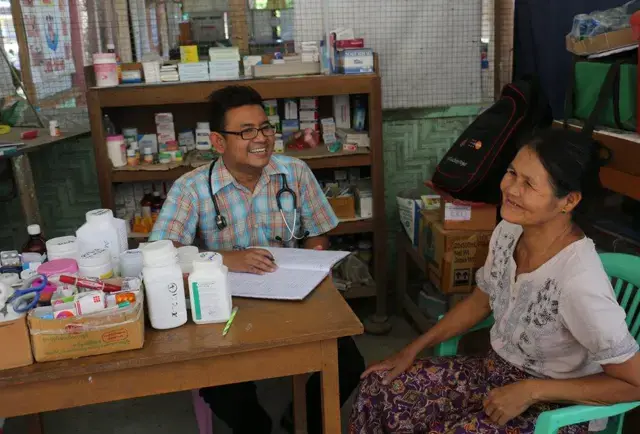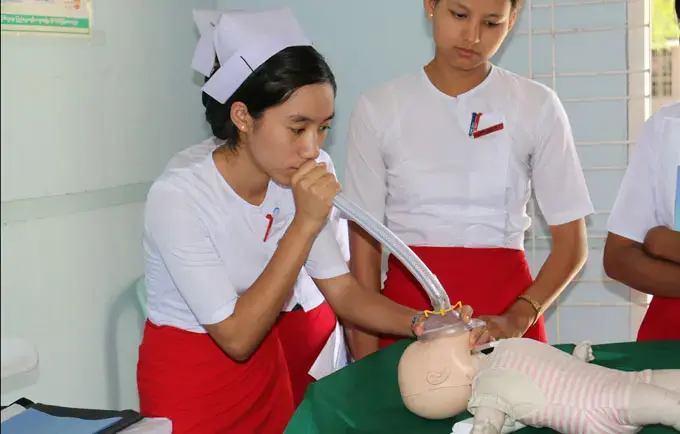Naypyitaw__ Approximately 60 health experts met in the capital of Naypyitaw on 26 to 30 August for a week-long conference to discuss ways to design and implement a national supply chain to ensure a more streamlined approach for all key actors working in reproductive health, as currently a uniform system for Myanmar is not in place.
"It is our common goal to provide high quality, equitably sexual and reproductive health information and services in Myanmar, which requires a well-designed, well-operated and well-maintained supply chain management system," said Ms. Kaori Ishikawa, UNFPA International Program Coordinator in her opening remark.
A recent reproductive health assessment study conducted in May by UNFPA and John Snow Inc., in cooperation with the Myanmar Ministry of Health, showed that there is a “lack of direct oversight and coordination for quantification, procurement and information management.”
“This workshop is a remarkable step in the milestones of reproductive health activities in our country,” said H.E. Dr. Thein Thein Htay, Deputy Union Minister for Health. Minister Dr. Htay also thanked UNFPA for its extensive technical assistance and appealed for further cooperation and an open dialogue amongst all the stakeholders in order to “ensure well-maintained supply chain assistance for reproductive health.”
“The supply chain system design process, involves both designing the key supply chain functions and activities, as well as establishing who is responsible for each," she added.
Discussion also concluded that more data is needed in order to assess to design a logistics system for reproductive health products in Myanmar.
The new supply chain system, once in operation, will be piloted in twelve townships, in four states and regions as part of the UNFPA programme. The system will identify reproductive health stakeholders and what they are responsible for. The system will also help keep track of existing stock levels, storage facilities, distribution of goods including identifying where supplies are needed and how much is required and distributed to the right locations. Once the pilot project has been completed, the findings will be reviewed and implemented nationwide.
UNFPA is in its third cycle of country programme assistance to Myanmar (2012 – 2015), working to strengthen health systems to improve the availability of high-quality, equitable sexual and reproductive health information and services.





